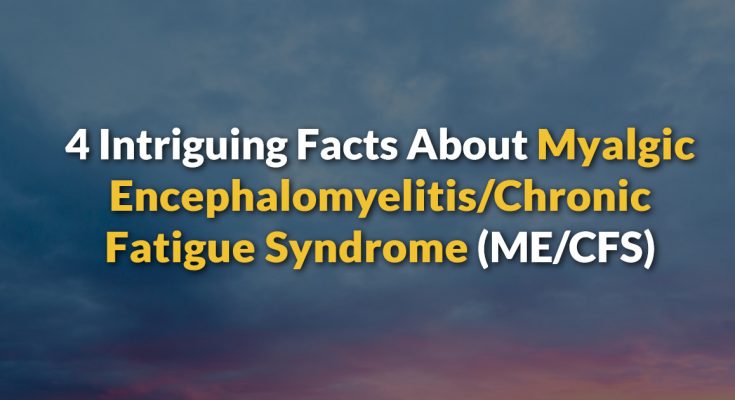Myalgic encephalomyelitis/chronic fatigue syndrome (ME/CFS) is a debilitating and misunderstood condition that affects millions of people worldwide.
Those living with ME/CFS often face unimaginable challenges, from overwhelming fatigue to the constant management of numerous physiological symptoms.
In this article, we are going to explore four interesting ME/CFS facts.
1. Endothelial Dysfunction Is Common In ME/CFS Patients
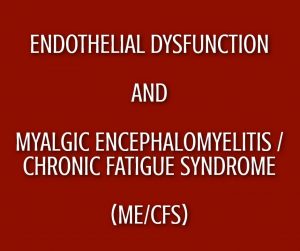
Numerous studies have now found evidence of impaired endothelial function in Myalgic encephalomyelitis/chronic fatigue syndrome (ME/CFS) patients.
Endothelial dysfunction is a precursor and often overlooked, independent risk factor for cardiovascular disease.
Vascular and autonomic symptoms are extremely common in people suffering from ME/CFS and endothelial dysfunction may serve as a potential underlying contributor to these issues.
A summary of the latest research assessing endothelial function in ME/CFS patients concludes:
Patients with ME/CFS had reduced endothelial function affecting both large and small vessels compared to healthy controls. – [1]
ME/CFS patients had reduced macro- and microvascular endothelial function, indicating that vascular homeostasis may play a role in the clinical presentation of this disease. – [2]
These findings provide direct evidence of endothelial dysfunction in both the large and small vessels of patients with ME/CFS, which may warrant a large prospective trial of cardiovascular outcomes in the disease. – [3]
2. Graded Exercise Therapy Is Ineffective & Harmful
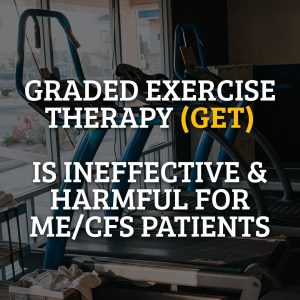
Historically, graded exercise therapy was hailed as a breakthrough in ME/CFS treatment, with its proponents advocating exercise as a way to reverse the condition.
However, medical professionals and patient organizations are now recognizing the limitations and potential hazards associated with this approach.
ME/CFS is characterized by severe fatigue and post-exertional malaise (PEM), a worsening of symptoms after physical or mental exertion.
Forcing individuals with ME/CFS into a graded exercise regime may inadvertently exacerbate their symptoms and push their energy envelope beyond sustainable limits.
The latest research on graded exercise and ME/CFS concludes:
The British National Institute for Health and Care Excellence (NICE) recently published its updated guidelines for myalgic encephalomyelitis/chronic fatigue syndrome (ME/CFS).
NICE concluded, after an extensive review of the literature, that graded exercise therapy (GET) is harmful and should not be used. – [4]
The analysis of the 2017 Cochrane review reveals flaws, which means that contrary to its findings, there is no evidence that graded exercise therapy is effective.
Because of the failure to report harms adequately in the trials covered by the review, it cannot be said that graded exercise therapy is safe.
The analysis of the objective outcomes in the trials provides sufficient evidence to conclude that graded exercise therapy is an ineffective treatment for myalgic encephalomyelitis/chronic fatigue syndrome. – [5]
3. Coenzyme Q10 Deficiency & ME/CFS
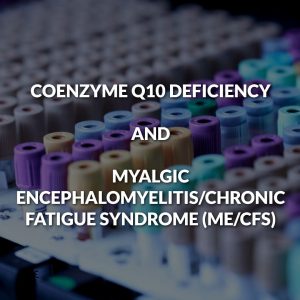
Research has discovered that Coenzyme Q10 deficiency plays a role in the pathophysiology of myalgic encephalomyelitis/chronic fatigue syndrome (ME/CFS) and is related to fatigue, autonomic and neurocognitive symptoms.
The studies have also found that Coenzyme Q10 deficiency may present another risk factor and independent predictor explaining the early mortality typically seen in ME/CFS patients due to cardiovascular disorder.
Coenzyme Q10, also known as CoQ10, plays a crucial role in our cellular energy production.
CoQ10 acts as an essential cofactor for the production of ATP in mitochondria.
Beyond its energy-boosting capabilities, CoQ10 also exhibits antioxidant and anti-inflammatory properties, protecting our cells from potential damage caused by free radicals and inflammation.
Disorders in inflammatory, oxidative and nitrosative (IO&NS) pathways have been shown to be one of the key disease processes which underpin ME/CFS as a complex condition with multiple systemic dysfunction.
The results show that lowered levels of CoQ10 play a role in the pathophysiology of ME/CFS and that symptoms, such as fatigue, and autonomic and neurocognitive symptoms may be caused by CoQ10 depletion.
The findings that lower CoQ10 is an independent predictor of chronic heart failure (CHF) and mortality due to CHF may explain previous reports that the mean age of ME/CFS patients dying from CHF is 25 years younger than the age of those dying from CHF in the general population. – [6]
4. CBT (Cognitive Behavioural Therapy) Is Only An Adjunctive Support Level Therapy At Best
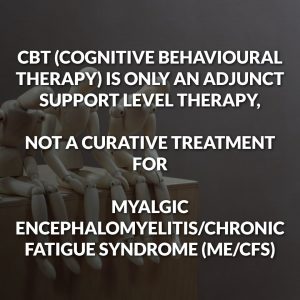
In recent years, the effectiveness of Cognitive Behavioral Therapy (CBT) as a “treatment” for ME/CFS has come under great scrutiny.
Much like graded exercise therapy (GET), proponents of Cognitive Behavioral Therapy (CBT) have long mistakenly believed that it is a curative treatment for ME/CFS, despite this not being true.
Cognitive behavioural therapy (CBT) can only be considered an adjunctive support-level therapy and not a curative treatment, because it doesn’t address the underlying disease processes or underlying causes behind ME/CFS.
Proponents of the cognitive behavioural model often find this fact difficult to accept and tend to completely ignore the growing body of pathophysiological evidence concluding that ME/CFS is a multi-systemic metabolic inflammatory disorder and not a psychological condition.
A reanalysis of a Cochrane review published 2019 actually found:
Analysis of the 2008 Cochrane review of cognitive behavioural therapy for chronic fatigue syndrome shows that seven patients with mild chronic fatigue syndrome need to be treated for one to report a small, short-lived subjective improvement of fatigue.
This is not matched by an objective improvement of physical fitness or employment and illness benefit status.
Most studies in the Cochrane review failed to report on safety or adverse reactions.
Patient evidence suggests adverse outcomes in 20 per cent of cases. If a trial of a drug or surgical procedure uncovered a similar high rate, it would be unlikely to be accepted as safe.
It is time to downgrade cognitive behavioural therapy to an adjunct support-level therapy, rather than a treatment for chronic fatigue syndrome. – [7]
References
[2] Endothelial dysfunction in ME/CFS patients
[3] Large and small artery endothelial dysfunction in chronic fatigue syndrome
The information in this article has not been evaluated by the FDA and should not be used to diagnose, cure or treat any disease, implied or otherwise.
Always consult with a qualified healthcare professional before making any significant dietary or lifestyle changes including supplements and herbs.
